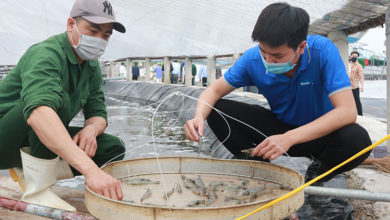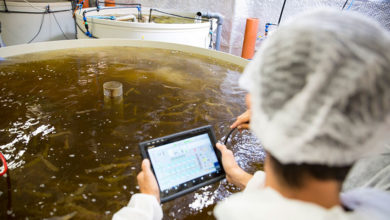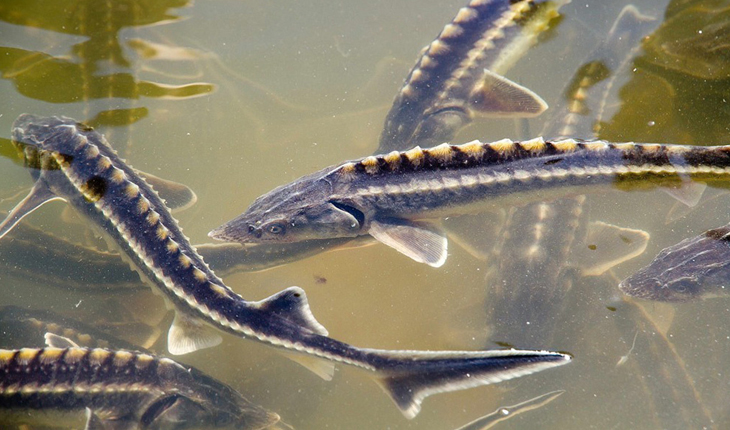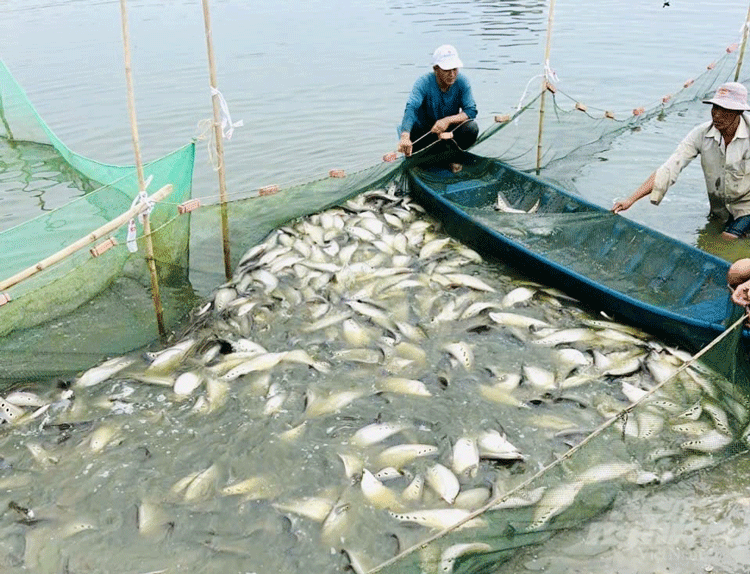All-male giant freshwater shrimp profit rise five-fold against rice
Farmers earn hundreds million dong/ha/year from all-male giant freshwater shrimp, five-fold against rice cultivation only.
The integration of rice cultivation with giant freshwater shrimp culture is recognized as profitable system in the Mekong Delta, making farmers earn hundreds million dong/ha/year which see five-fold increasea gainst rice cultivation alone. The system is highly evaluated by the National Agriculture Extension Center (NAEC) after three-year-trial of project “Development of giant freshwater shrimp culture model in the changed land”.
Total 300 hectares were used for giant freshwater shrimp culture with 233 participants from seven prefectures in Mekong Delta. Fifteen all-male giant freshwater shrimp –rice models, 4 rotation models and 11 polyculture models were carried out.
The results have shown that the integration of rice cultivation with giant freshwater shrimp culture is extremely suitable for medium households with low investment costs. Households can earn more than 150 million dong each with 70 million dong of interest if they invest 77 million dong/ha.
According to NAEC, Vietnam has great potential of giant freshwater shrimp culture, mainly in Mekong Delta. Almost 26,900 hectaresare used in giant freshwater shrimp farming, accounting for 3.24% of total aquaculture area of the region in Bến Tre, Đồng Tháp, Trà Vinh, Cà Mau, Bạc Liêu, Sóc Trăng.
The system is recognized to help farmers make a four/five-fold increase in profit against rice cultivation alone. The country is planning to use 30,000 hectares in giant freshwater shrimp culture in 2020 and 50,000 hectares in 2025.
Vice Director of NAEC Kim Văn Tiêu says Vietnam’s giant freshwater shrimp culture area may increase three times more than it is now due to climate change and saline instrusion because giant freshwater shrimp can survive well in salinity environment.
Though giant freshwater shrimp culture requires low investment costs, easy technique and survival rate is high, farmers still face difficulties in juvenile production; additionally, small-sized facilities may cause difficulties in selling.
Farmer Nguyễn Văn Chung in Vĩnh Thạnh district, Cần Thơ city says he invests more than 168 million dong into 10,000 square meters for giant freshwater shrimp culture. After harvest, he earns 125 million dong excluding costs. Male giant freshwater shrimps bring much higher profit than ordinary ones.
However, shrimp seed has been a challenge, which requires farmers to prepare qualified seeds and work together to seek for sustainable buyers.
“This system will bring out higher efficiency if farmers work together to produce giant freshwater shrimps repeatedly and find direct traders. Local authorities can support farmers with juvenile, farming technique and trading. They should invest wisely into a shrimp-rice season to show farmers how effectively this model brings, so that farmers will proceed willingly”, says Chung.
VFM






